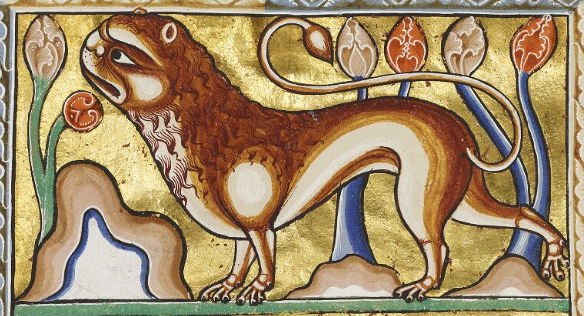This conference will address the notion of “first generations” in relation to the medieval Norman conquests in England, Wales, Ireland, southern Italy, Sicily, and the Crusader states. Focusing on the conquerors’ departure from their places of origin, the papers will explore the rhythms, modalities, reasons and objectives for leaving.
The conference aims at:
1/ Determining how relevant the notion of “first generations of the conquest” is. All these movements were phenomena that took place over several generations and featured different kind of protagonists – soldiers, mercenaries, pilgrims, merchants, clerics and monks.
2/ Considering the horizons of those who departed, while avoiding teleological and unilinear assumptions. These horizons require an analysis of diverse dynamics and “push and pull” factors: political motivations, economic grounds, social mechanisms, acculturation processes, social and political creativity.
3/ Exploring the documentation, approaches, and tools that help to answer these questions. Our documentation was often produced in the regions where the conquerors settled, and it focuses on their new status; it must be compared retroactively with sources from Normandy (and more broadly speaking from northern France) to enlighten the dynamics that led to the mobility of these people.
This conference is part of the Pax Normanna 2022-2026 research programme of the École française de Rome (dir. Pierre Bauduin, University of Caen Normandie, and Annick Peters-Custot, Nantes University).
The Haskins Society will co-sponsor the conference, encouraging young researchers presenting a paper to apply for the Bethell Prize.
Please click the link below to join the conference online:
https://us06web.zoom.us/j/89710859004?pwd=Hc7_Tab_Yxdq3x3VOGtWoWCCl3ErEg.71VlVJmLHvZZERxv
PROGRAMME (Download the abstracts here)
Friday 22 September, Maison française d’Oxford
13:30 Welcome
14:00 Pierre Bauduin (CRAHAM, Université de Caen Normandie), Annick Peters-Custot (CRHIA, Université de Nantes): “The first generations of the conquest. Departing: presentation”
14:30 Chris Lewis (Institute of Historical Research, University of London): “Becoming a Baron in Early Norman England”
15:00 Mark Hagger (Bangor University): “Chance, Kinship, and Claim: The Normans and Anglo-Normans in Wales after 1066”
15:30 Discussion
Coffee and tea
16:15 Stephen Baxter (St Peter’s College, Oxford): “The men who made Domesday: a revolutionary intelligentsia in early conquered England?”
16:45 Tom McAuliffe (Wolfson College, University of Oxford): “Lost in Translation: textual reinterpretation and the St Augustine’s historical tradition in the generation after the Conquest”
17:15 Discussion
18:00-19:30 Visit to the archives and manuscripts at Magdalen College (Emily Jennings)
Conference dinner (speakers)
Saturday 23 September, Maison française d’Oxford
9:00 Bastien Michel (CRAHAM, Université de Caen Normandie): “ ‘The Number of Years’. Youth and conquests in the medieval Norman worlds (11th – 12th centuries)”
9:30 Nathan Websdale (Wolfson College, University of Oxford): “The Translatio of St. Nicholas of Myra and the journeys of Norman-Greeks in the eleventh century”
10:00 Discussion
Coffee and tea
10:45 Marie-Agnès Lucas-Avenel (CRAHAM, Université de Caen Normandie): “The departure of the ‘Normans’ to Southern Italy: from migration to conquest according to Italo-Norman historiography”
11:15 Guilhem Dorandeu (École française de Rome): “Reassessing Norman Emigrations in Southern Italy (11th-12th centuries)”
11:45 Victor Rivera Magos (Università degli Studi di Foggia): “The Norman conquest of Apulia and the «first generation»: for a working hypothesis”
12:15 Discussion
13:00 Concluding remarks
Lunch at MFO (speakers)
Convened by pierre.bauduin@unicaen.fr & annick.peterscustot@univ-nantes.fr
MFO Coordinator: olivier.delouis@campion.ox.ac.uk
Credits: Tours, Bibliothèque municipale, Ms. 568 f. 249v © BMT
















